The elderly are the group most at risk when temperatures drop.
Mr. Nguyen Trong Minh (65 years old, Toan Luu commune) was being treated for chronic obstructive pulmonary disease (COPD) at Ha Tinh General Hospital. The night before being admitted to the hospital, he had bouts of coughing, phlegm, wheezing, and chest tightness. This is a chronic respiratory disease. The disease tends to recur more when the weather turns cold, due to decreased resistance and respiratory function.
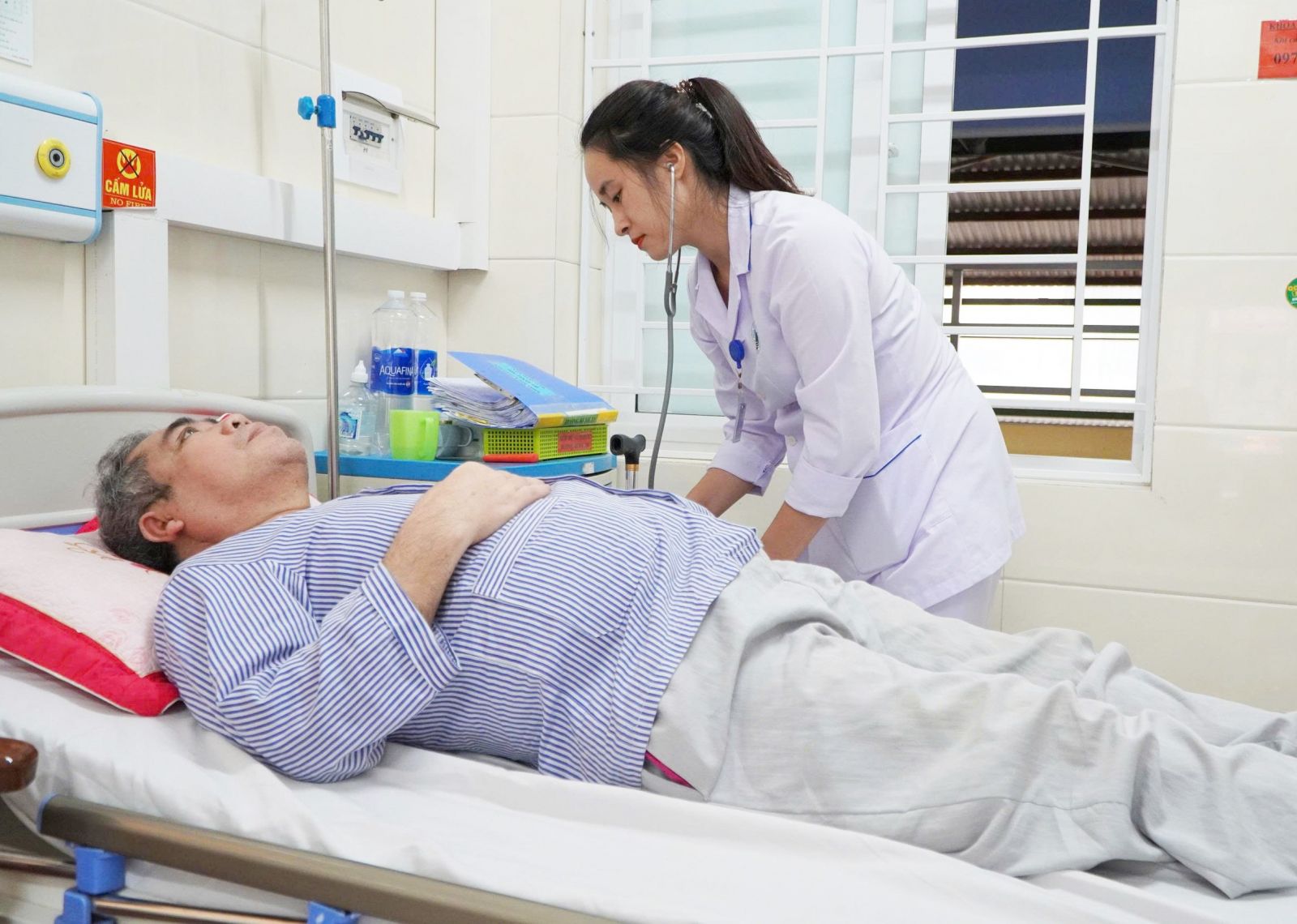
Health check for patients with history of high blood pressure at Internal Medicine Department A, Ha Tinh General Hospital.
Currently, Ha Tinh General Hospital receives about 200 patients transferred from lower-level medical facilities and their families every day. The number of inpatients has also increased significantly, from about 200 to nearly 250.
In addition to Ha Tinh General Hospital, medical centers in the province also recorded an increase in the number of hospitalized patients, mainly concentrated in the over 60 age group, with underlying diseases such as chronic obstructive pulmonary disease (COPD), lung diseases, high blood pressure, cardiovascular diseases, diabetes, etc.
According to cardiovascular, endocrinology and respiratory specialists, cold weather Satisfied “trigger” many chronic diseases to recur or worsen. When the ambient temperature drops, the elderly body, which already has reduced regulation capacity, must work harder to keep warm. This leads to peripheral vasoconstriction, increases blood pressure, increases the burden on the heart, and can easily cause cardiovascular events such as stroke, myocardial infarction, and hypertensive crisis.
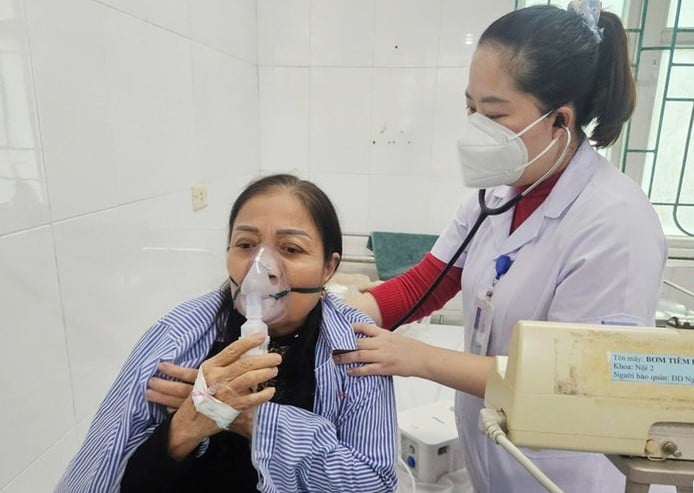
Many patients require nebulizers due to acute illness.
Dr. Pham Huu Da, Head of the Cardiology Department, Ha Tinh General Hospital, said that cold weather makes many patients think that taking less blood pressure and lung medicine will not affect them, but this is a very wrong concept. "Chronic diseases require strict adherence to treatment, especially in harsh weather. Any interruption can lead to dangerous complications," said Dr. Da.
Children are susceptible to respiratory and digestive diseases in cold weather.
When the weather turned cold, Nguyen Thanh An, born in 2013, in Ha Huy Tap ward, showed symptoms of cough and difficulty breathing. When taking medicine at home did not help, his family took him to Thanh Sen Ward Medical Center for examination and treatment. There, doctors diagnosed him with asthma.
Ms. Phan Thi Nhai (Thanh An's mother) said that in the evening, her child started to have symptoms of persistent cough, difficulty breathing with wheezing, especially when exhaling, chest tightness and wheezing. "The family gave her medicine but it did not help, so they called an ambulance to take her straight to Thanh Sen Medical Center," Ms. Nhai said.
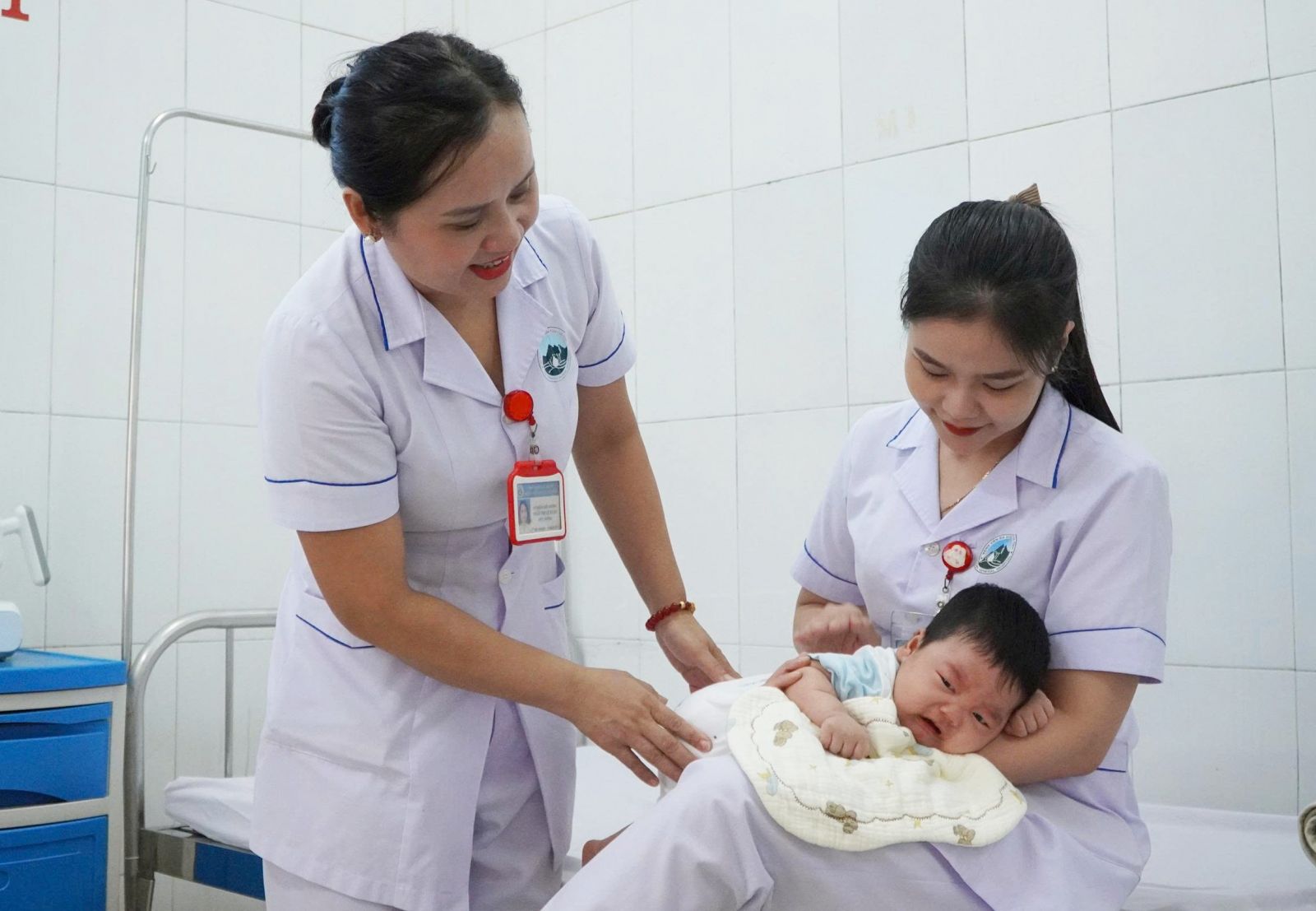
Cases of bronchitis and bronchospasm tend to increase slightly in children under 2 years old.
At the Pediatrics Department of Ha Tinh General Hospital and other medical centers in the province, the number of children coming to the clinic for respiratory infections increased by about 15-20% during the cold days. Cases of bronchiolitis and bronchospasm tended to increase slightly in children under 2 years old.
Dr. Tran Anh Phap, Head of Pediatrics Department, Thanh Sen Medical Center, said that children are the most sensitive subjects when the temperature drops sharply. Children's immune systems are not yet complete, the insulating fat layer is thin, the ability to regulate body temperature is poor, so children are very susceptible to respiratory diseases such as bronchitis, bronchiolitis, pharyngitis, seasonal flu, pneumonia. Many children are hospitalized due to complications of pneumonia due to prolonged cough and fever without timely treatment.
"In cold weather, children tend to be lazy, eat irregularly, and have less exposure to sunlight, so they are prone to micronutrient deficiencies, especially vitamin D, an important factor for bones and the immune system. Some children with weak digestive systems are also susceptible to digestive disorders and diarrhea due to changes in environment and living habits," said Dr. Tran Anh Phap.
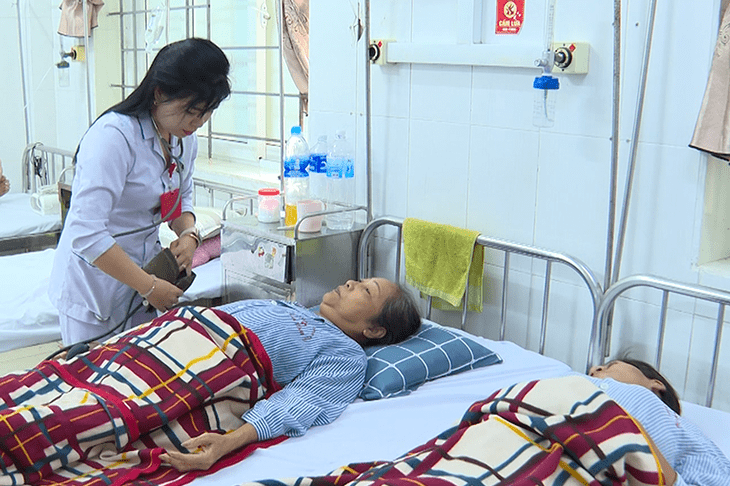
Ha Tinh General Hospital and medical centers recorded a 20% increase in the number of patients, mainly chronic diseases due to the sudden cold weather.
Doctors recommend that to protect health in sudden cold weather, when the temperature drops sharply, people need to keep their bodies warm, limit going out in the early morning or at night. Follow a nutritional regimen rich in vitamins C, A, E to increase resistance. Drink enough water, even when it is cold, you will not feel thirsty. Elderly people should avoid salty foods, limit fatty foods to reduce the risk of high blood pressure and cardiovascular complications.
For children, keep them warm, let them get enough sleep, and provide adequate nutrition. Clean the child's nose and throat with saline when it's cold or when the child shows signs of sneezing or stuffy nose. Vaccinate the child according to schedule, especially the flu and pneumococcal vaccine. When there are signs of abnormal health, it is necessary to see a doctor for timely intervention and treatment.
Source: https://suckhoedoisong.vn/bac-si-khuyen-cao-phong-benh-cho-nguoi-gia-va-tre-em-khi-nhet-do-giam-manh-169251125061238618.htm


![[Photo] Prime Minister Pham Minh Chinh chairs the 15th meeting of the Central Emulation and Reward Council](/_next/image?url=https%3A%2F%2Fvphoto.vietnam.vn%2Fthumb%2F1200x675%2Fvietnam%2Fresource%2FIMAGE%2F2025%2F11%2F27%2F1764245150205_dsc-1922-jpg.webp&w=3840&q=75)




![[Photo] President Luong Cuong attends the 50th Anniversary of Laos National Day](/_next/image?url=https%3A%2F%2Fvphoto.vietnam.vn%2Fthumb%2F1200x675%2Fvietnam%2Fresource%2FIMAGE%2F2025%2F11%2F27%2F1764225638930_ndo_br_1-jpg.webp&w=3840&q=75)




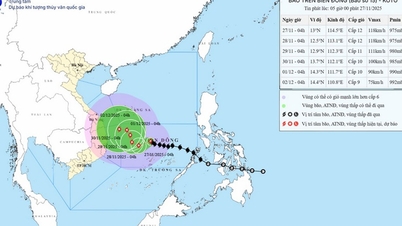



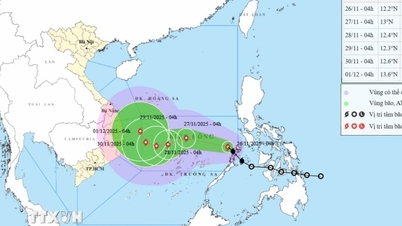



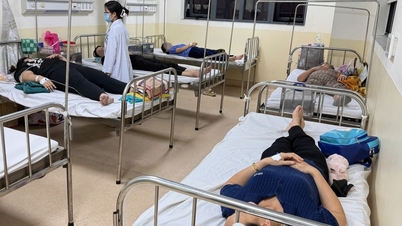

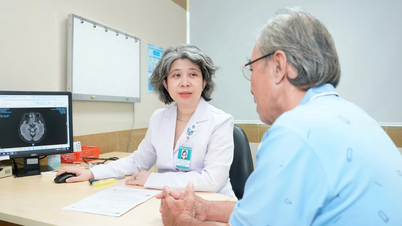


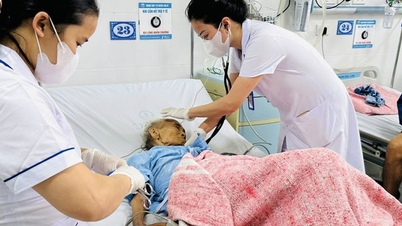








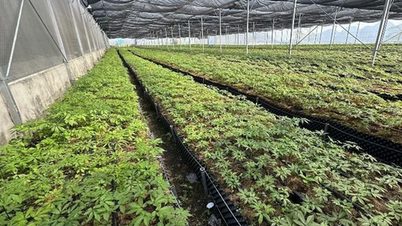













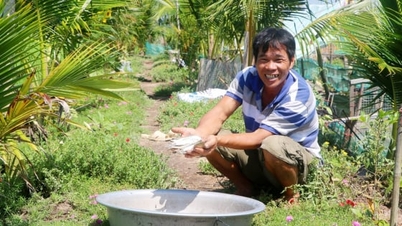



























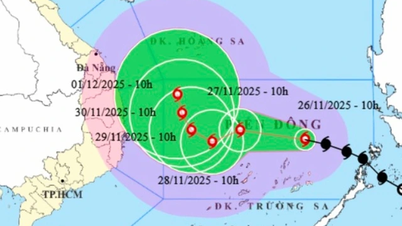













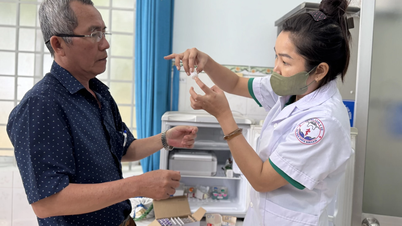














Comment (0)